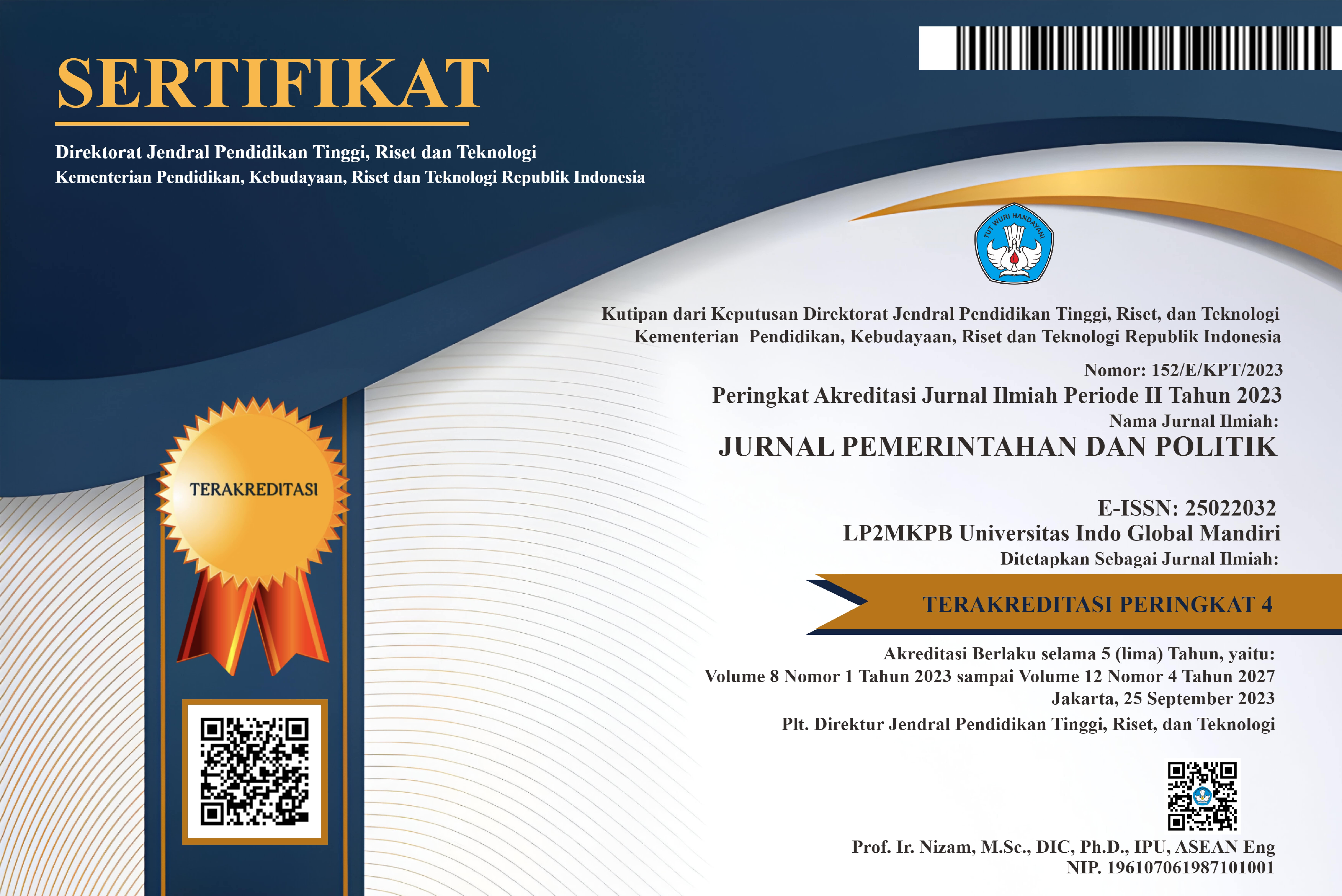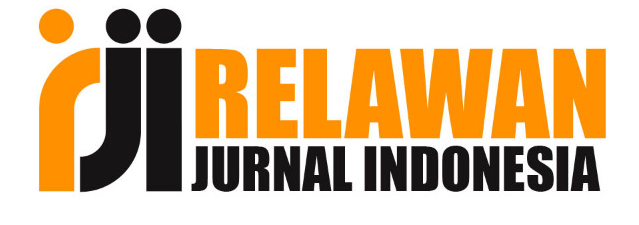Good Governance Dalam Mengukur Kinerja Lembaga Negara (Review)
DOI:
https://doi.org/10.36982/jpg.v7i1.1974Abstract
This study aims to encourage the realization of good governance as accountability and transparency of the performance of state institutions. This study uses a literature review method which is analyzed descriptively. The data source used is secondary data. This scientific study was conducted for 2 (two) months, namely July-August 2020. The process of preparing the report was carried out by referring to the research stages of data collection, data reduction, data presentation, and drawing conclusions. Based on the results of this study, efforts to realize good governance epistemologically can only be implemented in five universal principles, namely: responsibility, accountability, fairness, independence, and transparency. Strategies to encourage accountability and transparency of the performance of state institutions to achieve good governance can be carried out through strengthening the basis for supporting state institutions' performance instruments, strengthening performance-based budgeting and monitoring the performance of state institutions. Recommendations that can be made are: (1) setting up the instrument model for the performance of state institutions in accordance with the principles of good governance; (2) setting and developing a performance-based budget system to monitor and evaluate performance in accordance with the principles of good governance; and (3) innovative role models for monitoring the performance of state institutions.
Â
Keywords : good governance, accountability, transparency, state institutions
References
Atmosodirjo, P., 1983. Hukum Administrasi Negara. Jakarta: Ghalia Indonesia Press.
Bappenas, 2007. Penerapan Tata Kepemerintahan yang Baik: Petunjuk Bagi Aparatur Negara, Sekretariat Tim Pengembangan Kebijakan Nasional Tata Kepemerintahan yang Baik, Jakarta,. [Online]
Available at: http://bappenas.go.id/
[Accessed 30 Agustus 2015].
Baswir, R., 2000. Akuntansi Pemerintahan Indonesia. Yogyakarta: BPFE Press.
Chapter, 2013. Good Governance: Suatu Tinjauan. [Online]
Available at: http://google.com//pdf.
[Accessed 29 Agustus 2015].
Chapter, 2014. Good Governance: Suatu Studi Pemikiran. [Online]
Available at: http://google.com//pdf./
[Accessed 29 Agustus 2015].
Chapter, 2015. Perkembangan Tata Kelolah yang Baik (Good Governance) dan Penerapannya Dalam Penyelenggaraan Sistem Elektronik: Suatu Studi Pustaka. [Online]
Available at: http://google.com//pdf./
[Accessed 29 Agustus 2015].
Coryanata, I., 2012. Akuntabilitas, Partisipasi Masyarakat dan Transparansi Kebijakan Publik Sebagai Pemoderating Hubungan Pengetahuan Dewan Tentang Anggaran dan Pengawasan Keuangan Daerah (APBD). Jurnal Akuntansi dan Investasi, 12(2), pp. 110-125.
Darwanis & Chairunnisa, S., 2013. Akuntabilitas Kinerja Instansi Pemerintah. Jurnal Telaah dan Riset Akuntansi, 6(2), pp. 150-174.
Dwiyanto, A., 2004. Reorientasi Administrasi Publik dari Government ke Governance, Pidato Pengukuhan Guru Besar Fisipol UGM, Jogjakarta. [Online]
Available at: http://lib.ugm.ac.id/
[Accessed 29 Agustus 2015].
Fibiona, I. & Purba, J. R. T., 2012. Dari administrasi publik ke publik governance. [Online]
Available at: http://indracuin.blogspot.co.id
[Accessed 29 Agustus 2015].
Halim, A., 2002. Seri Bunga Rampai Manajemen Keuangan Daerah: Akuntansi dan Pengendalian Keuangan Daerah. Yogyakarta: UPP AMPYKPN Press.
Halim, A., 2007. Akuntansi sektor publik: Akuntansi keuangan daerah. Jakarta: Salemba Empat Press.
Helmi, A., 2009. Tunjangan Besar, Kinerja SKPA Kedodoran: SILPA membengkak Dari Tahun ke Tahun. s.l.:Harian Serambi Indonesia.
Kenis, I., 1979. Effects on budgetary goal characteristic on managerial attitudes and performance. The Accounting Review LIV, Volume 4, pp. 707-721.
Komarudin & Yudo, S., 2009. Transparansi dan akuntabilitas pelayanan publik kasus teknologi pengelolaan air bersih dan air limba domestik. Jurnal Akuntansi Indonesia, 5(1), pp. 89-103.











